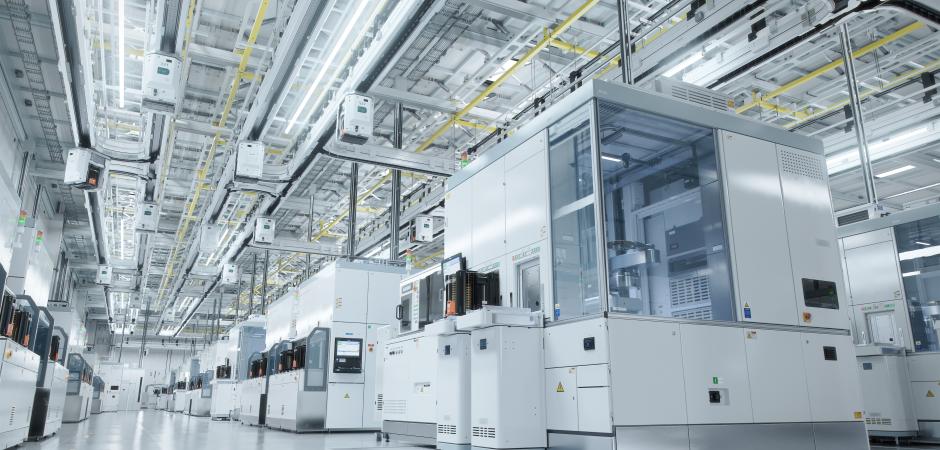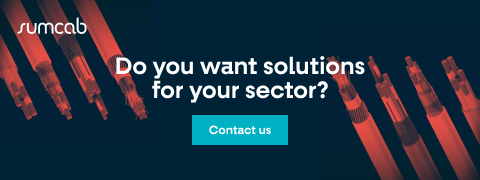
At Sumcab we understand innovation and investment in R&D as essential factors in achieving maximum competitiveness in industrial cable.
The applications of these cables, in their different types as required by industrial robotics, industrial communication and many other markets, grow steadily year-on-year.
A meeting point for professionals on this matter is the one periodically organised by PVC4Cables on an international basis. The last event in this regard took place on 5 October 2022 in Bologna (Italy).
At this third conference on the European Council of Vinyl Manufacturers (ECVM) platform dedicated to the value chain of PVC cables, emphasis was placed on both innovation in the design and manufacturing of industrial cable, as well as on the already inescapable component of sustainability.
Innovation and safety in industrial cables
Presenting to 140 European operators, Carlo Ciotti, Spokesperson for PVC4Cables, set out the opportunities that industrial cables and specifically PVC cables have for development and renewal.
The investment in more efficient, safer and more sustainable cables demonstrates such progress in the industry. The ever-increasing use of technology in smart homes and improvements in optical fibre and telecommunication cables open up countless development options for the sector and also new services available for companies and individuals.
Innovation involves withstanding the new demands of today's telecommunications, but also providing optimal safety levels.
One of the most interesting investments at this point is the manufacture of PVC cables with very low acid smoke emissions, in case of a fire.
The latest developments in industrial cable and associated studies confirm that PVC cables do not present higher levels of toxicity than other materials (such as wood) in a fire.
Corrosion or acidity of smoke is related to the possible damage that may occur in a property, but this does not relate to human safety or toxicity.
This does not, however, prevent further investment and improvement in this area. Some recent research suggests the usefulness of using new eco-friendly resins and bio-plasticizers for flame-retardant PVC cable compounds.
Likewise, innovation in industrial cable is also focused on electric vehicles, an emerging market with endless possibilities. In this sense, at the international conference, developments on PVC covers for charging cables in these cars were discussed.
Industrial cable and sustainability
As in all professional sectors, when it comes to industrial cables, sustainability is also a main theme of interest, both for manufacturers and for the companies that use them in their facilities or in their production processes.
The goal is always to reduce the impact on the carbon footprint and design cables with sustainable and less polluting materials that, in addition, allow an optimal recycling process.
Really, this approach is not new. As elaborated at the event organised by PVC4Cables, millions of tons of PVC from cables have been recycled since the beginning of the 21st century, which also allows for savings of millions of tons of CO2 emissions.
The only negative data regarding these recycling figures has occurred in recent years due to the COVID-19 pandemic and Brexit, as the amount of PVC cables exported to the UK in order to be recycled has reduced.
It is true that there are still things to improve. Although PVC cables manufactured in Europe do not as yet contain SVHC (substances registered as being of very high concern), action should be taken, with regard to regulatory uncertainties and restrictions in the EU regarding the presence of legacy additives in older PVC cables. In any case, investment in and promotion of SVHC-free PVC cables has itself consolidated as the best strategy so its recycling continues on an upward trend in the years to come.
At the event held in Bologna, the advantages that recycling PVC cables also potentially offers on an economic level were highlighted.
Recycling industrial cable costs less than diverting this waste to landfill or even using incineration, in the latter aspect, due to the energy expenditure required for the process.
However, what is ideal is to maintain constant research and innovation regarding the recycling possibilities of all types of cables, in order to improve sustainability levels in the sector.
Zdenek Hruska, Project Manager of PVC4Cables, closed the conference by talking about the optimal results achieved by the platform and, above all, emphasising that good results are achieved through the collaboration of experts from industry, universities and research bodies, who promote R&D&i, thus connecting innovation and sustainability.

